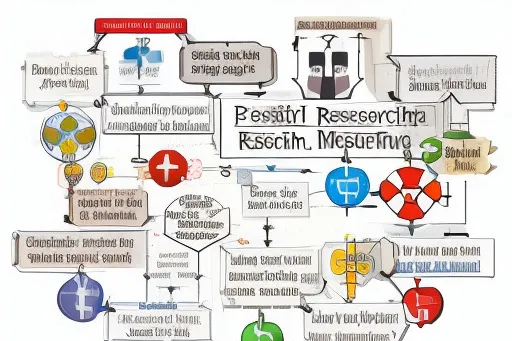Essential Research Methods For Social Work: A Comprehensive Guide


In today’s fast-paced world, social work practitioners need to have a solid understanding of research methods to effectively carry out their work. In this article, we will explore the essential research methods for social work and how they can empower practitioners to make a positive impact on individuals and communities.
Check out this YouTube video titled “6 Must Have Books for Social Work Students!” for essential research methods for social work.
What are Research Methods?
Research methods refer to the systematic approaches utilized to gather, analyze, and interpret data in order to answer research questions or test hypotheses. In the context of social work, research methods are crucial in gathering empirical evidence to inform the development, implementation, and evaluation of social interventions.
The Importance of Research Methods in Social Work
Research methods play a pivotal role in advancing the field of social work. By utilizing rigorous research methodologies, social workers can contribute to the evidence base and enhance the effectiveness of their practice.
Here are some key reasons why research methods are essential in social work:
-
Evidence-Based Practice: Research methods provide a framework for social workers to gather evidence that supports their interventions. By utilizing research methods, social workers can ensure that their practice is grounded in empirical evidence, leading to more effective interventions.
-
Program Evaluation: Research methods enable social workers to evaluate the effectiveness of social programs and interventions. By collecting and analyzing data, social workers can identify which programs are successful and which ones need improvement or adjustment.
-
Informing Policy Development: Research methods help social workers gather data that can inform policy development and advocacy efforts. By conducting research, social workers can identify social issues, gather evidence, and influence policy decisions to address these issues effectively.
-
Continuous Learning and Growth: Research methods foster a culture of learning and growth in the field of social work. By engaging in research, social workers acquire new knowledge and skills, leading to professional development and improving the quality of their practice.
Types of Research Methods in Social Work
There are various research methods utilized in social work practice. Here are some of the most common types of research methods in the field:
-
Quantitative Research: Quantitative research involves the collection and analysis of numerical data. This research method aims to establish relationships, patterns, and trends through statistical analysis.
Examples of quantitative research in social work include surveys, experiments, and statistical analysis of existing data sets.
-
Qualitative Research: Qualitative research focuses on exploring and understanding social phenomena through in-depth interviews, observations, and analysis of textual data. This research method seeks to capture rich, descriptive data to gain insights into individuals’ experiences, perceptions, and social processes.
-
Mixed Methods Research: Mixed methods research combines both quantitative and qualitative research approaches. This research method seeks to provide a comprehensive understanding of a social issue by utilizing both numerical data and qualitative insights.
-
Action Research: Action research is a collaborative approach that involves social workers and community members working together to address specific challenges or problems. This research method emphasizes the importance of incorporating the perspectives and experiences of those affected by the issue in the research process.
Best Recommended Product: NVivo 12 for Windows
In the realm of essential research methods for social work, one standout product that can greatly enhance research efficiency and analysis is NVivo 12 for Windows. NVivo 12 is a powerful qualitative data analysis software that aids researchers in organizing, analyzing, and gaining insights from qualitative data.
With NVivo 12, social work researchers can:
- Import and organize textual, audio, and visual data in one central location.
- Utilize various tools to code and categorize data, making analysis more efficient and systematic.
- Conduct advanced search queries and filters to identify patterns and themes.
- Generate in-depth reports and visualizations to effectively communicate research findings.
NVivo 12 provides social work researchers with the tools they need to analyze qualitative data effectively, leading to more valid and reliable research outcomes. You can find NVivo 12 for Windows on Amazon here.


Conclusion
In conclusion, essential research methods are vital in the field of social work. By employing rigorous research methodologies, social workers can enhance the impact of their interventions, contribute to the evidence base, and inform policy development.
Research methods, such as quantitative, qualitative, mixed methods, and action research, provide valuable tools for social work practitioners to gather empirical evidence and improve the effectiveness of their practice.
A recommended product that can greatly support social work researchers is NVivo 12 for Windows. This qualitative data analysis software empowers researchers to organize, analyze, and gain insights from qualitative data, ultimately enhancing the research process. Click here to find NVivo 12 for Windows on Amazon and elevate your research methods in social work.


Remember, in the world of social work, embracing research methods is essential for driving positive change and making a lasting impact on individuals, families, and communities.





